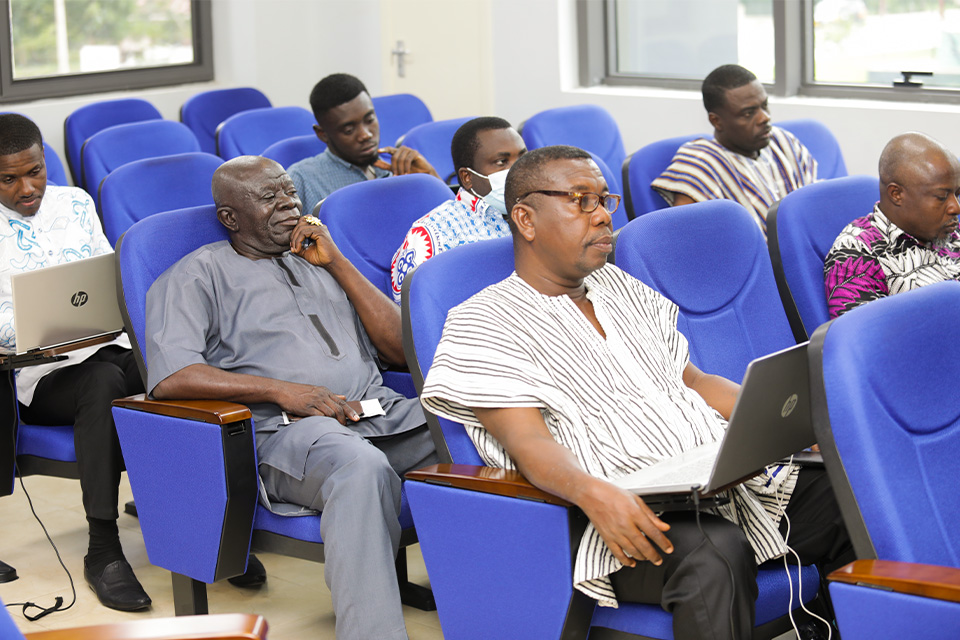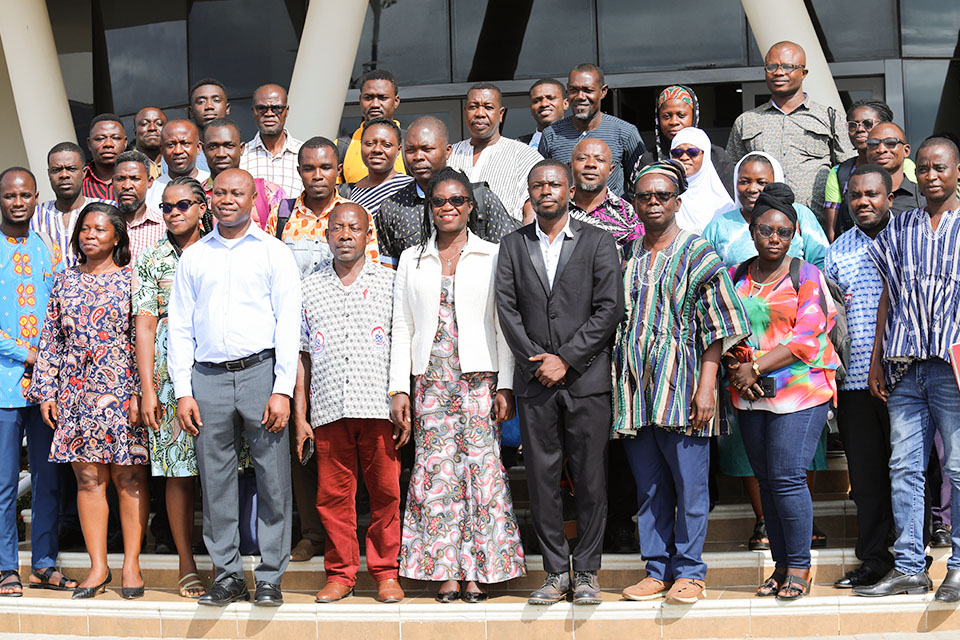UEW-FFLE Trains Lecturers in Digital Humanities
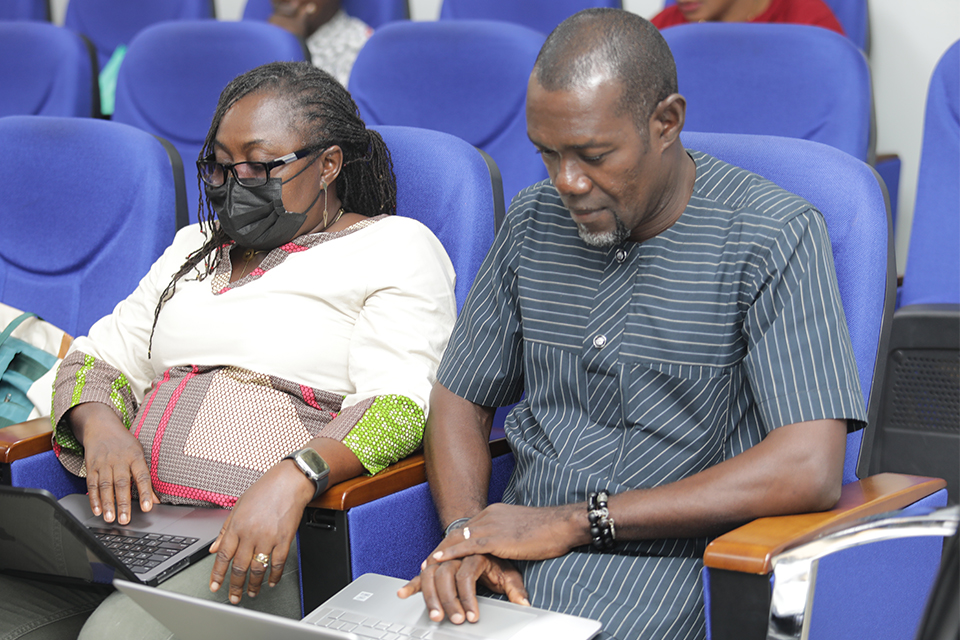
The Faculty of Foreign Languages Education (FFLE), University of Education, Winneba (UEW), has held a one-day workshop to build the capacity of academic staff on emerging trends in research. It was also intended to help staff engage in innovative research and transfer modern trends in research, particularly to Doctor of Philosophy (Ph.D.) and Master of Philosophy (M.Phil.) students.
The workshop, which took place at the Students Centre Conference Room III, North Campus, UEW, was on the theme “Digital Humanities: Emerging Trends in Research”.
In welcoming participants on behalf of Prof. Dominic Kwaku Danso Mensah, the Principal of the College of Languages Education (CoLANG), Ajumako Campus, the Dean of FFLE, Dr. Rebecca Akpanglo-Nartey, said the theme was apt given that the 21st Century had ushered humans into a new normal of digital data transformation.
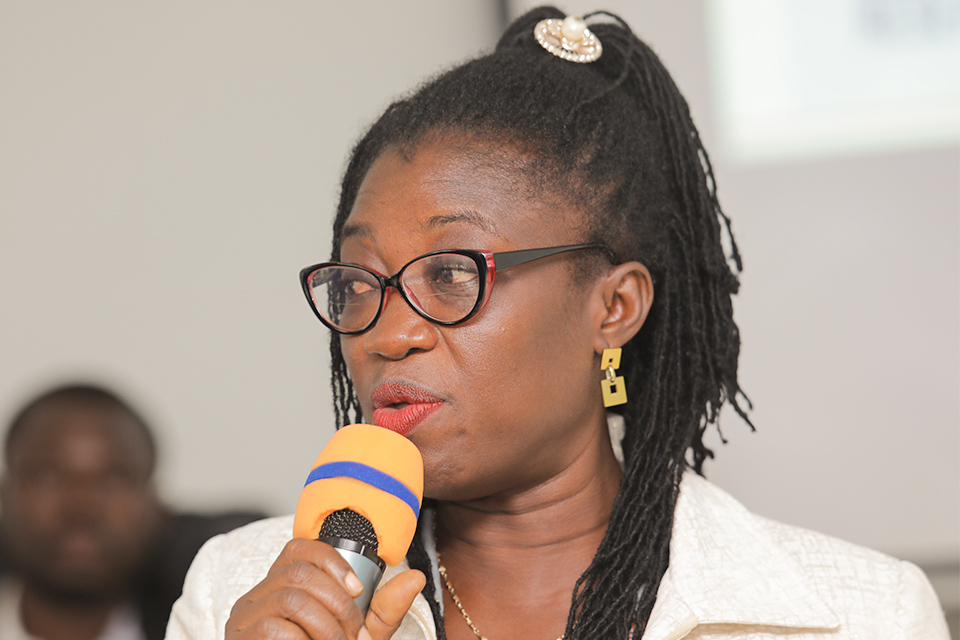
She pointed out that the new frameworks were designed from key insights taken from languages, literature, history, music, media, communications, computer science, and information studies in the digital humanities.
“More recently, the disciplinary focus has widened to include critical digital studies, as well as fields more commonly associated with engineering, data science, and artificial intelligence. Digital humanities employ the use of digital technology to conduct and enhance research. We find ourselves in an era where computing has fast become a requirement in our disciplines and the intersection cannot be overemphasised even in the humanities,” the Dean stated.
Dr. Rebecca Akpanglo-Nartey disclosed that new methods such as computer-based statistical analysis, search and retrieval, topic modelling, and data visualisation make it possible to conduct research using digital materials such as web or digital databases.
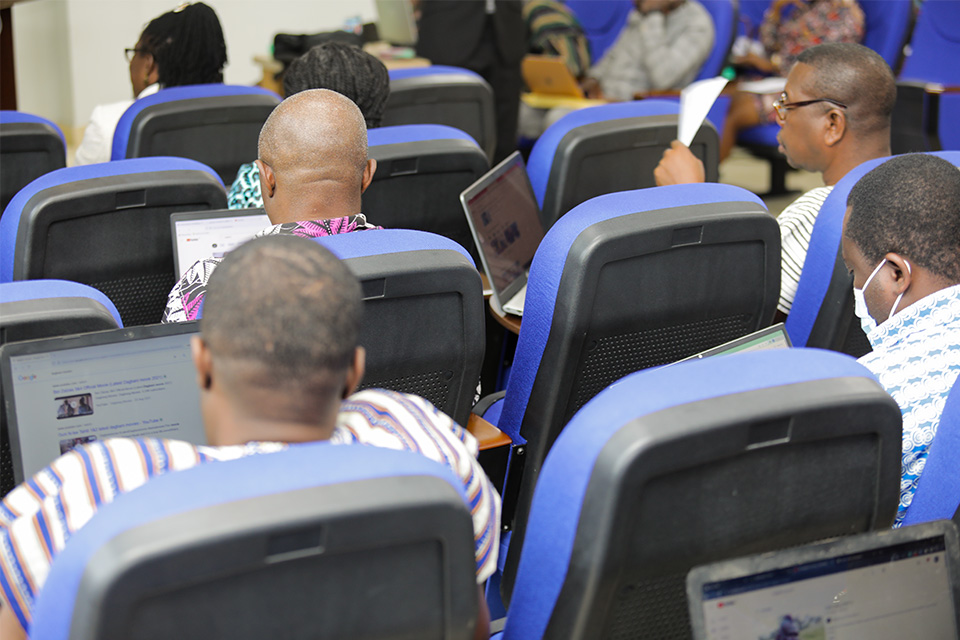
“Digital technologies open up exciting opportunities for connecting the humanities to a wider public culture. They can be very useful instruments to enhance and stimulate innovative research. Digital technology and basic research ought not to be separated in this 21st century because technology defines our lives now.
“Thus, there is a need to be less conservative in this fast-changing world. We have to stay relevant in our fields. We need, therefore, to be prepared for the market which is fast-changing to become the digital market,” she averred.
The Dean indicated that the workshop was meant to build the capacities of senior members in digital technologies and career development. “This workshop is also expected to empower our senior members to be up-to-date with current trends in research. I expect that the new knowledge that we will be acquiring from this workshop will be applied in our teaching and research to reflect growth.”
Two lecturers at the FFLE, Rev. Fr. Dr. Anthony Adawu and Dr. Andani Kholinar facilitated the training.
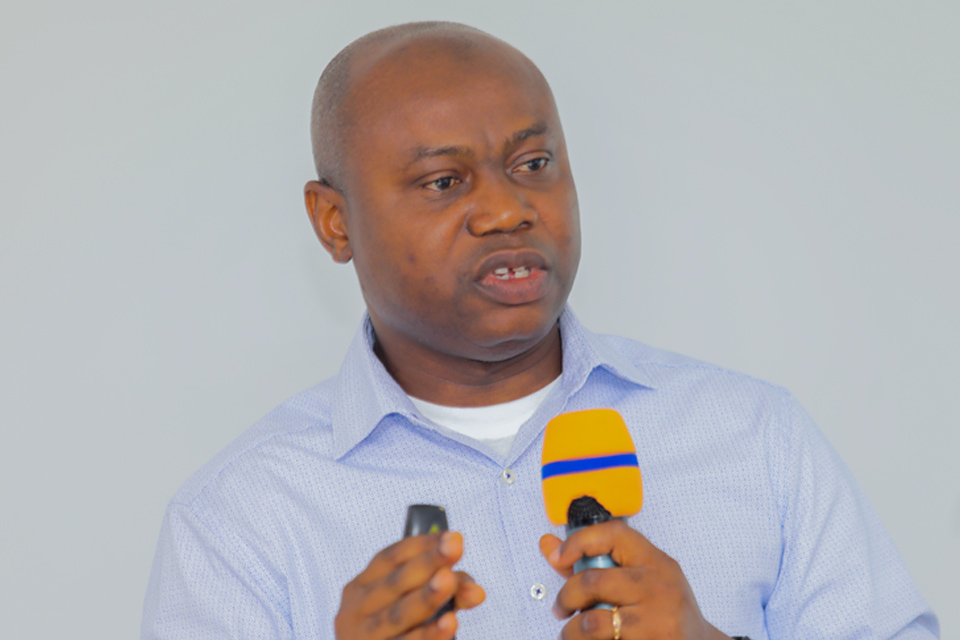
In his presentation, Dr. Adawu said that to conceptualise digital humanities, two conversations to understand how the use of computing and experiences associated with it change the way knowledge is organised, particularly in universities, must be paid attention to. "So, we try to problematise computationality and the impact that it has on how we create knowledge, how we transform knowledge, and how we use knowledge."
He added, "another conversation ongoing is rethinking and renegotiating the idea of the university. Some people are looking at the university traditionally as we know it and are pushing to rethink and renegotiate it to meet the conversation on computationality so that the university doesn't find itself lagging."
Fr. Dr. Adawu iterated that universities historically play the role of helping to construct knowledge, which is associated with how to organise knowledge as seen in different disciplines.
"When you have so many things that you are doing and thinking about as a university, the tendency is for everybody to be doing their own thing and then knowledge seems to be compartmentalised and so throughout the history of universities, or very early on, the idea of organising the university around a certain focal point knowledge-wise has been there," he noted.
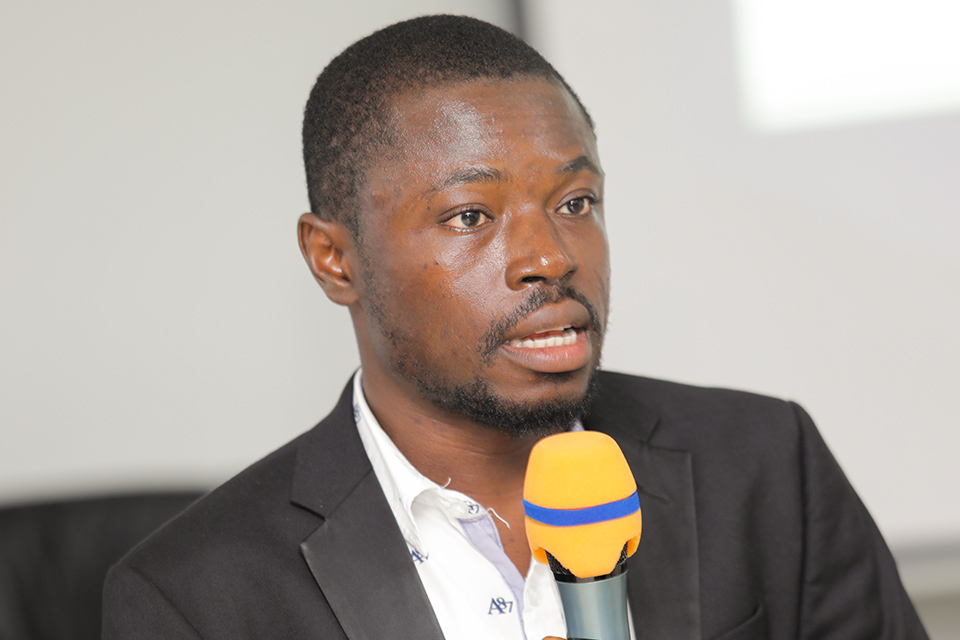
Dr. Kholinar, who handled the practical aspect of the workshop, introduced participants to emerging software applications, such as Python, Coursera, Google Free Courses, Code Academy, MIT OCW, LinkedIn Learning amongst others.
He explained that a turn toward the digital is reinventing every aspect of the humanities and every aspect of people’s lives.
"Digital humanities, we can say, is a field of study, research, teaching, and invention concerned with the intersection of computing and the disciplines of the humanities. It’s methodological by nature and interdisciplinary in scope. Digital humanities also involve investigation, analysis, synthesis, and all the aspects of research that we need," he remarked.
